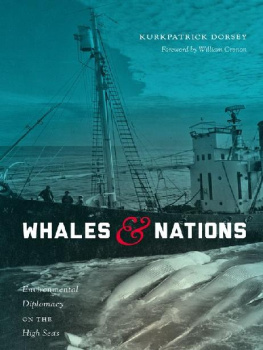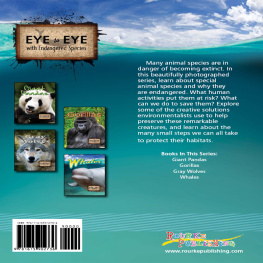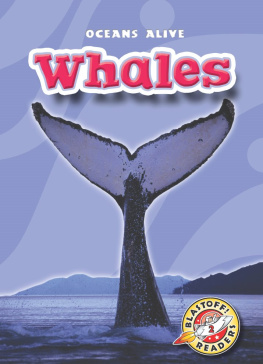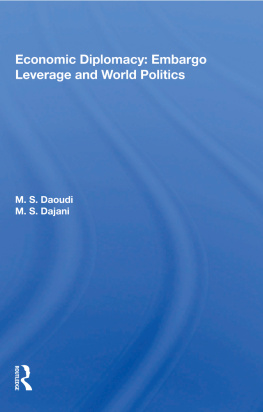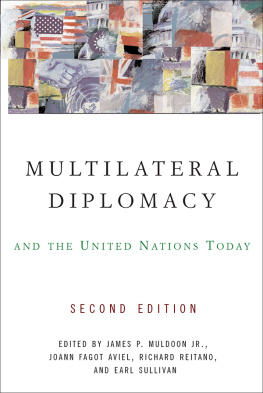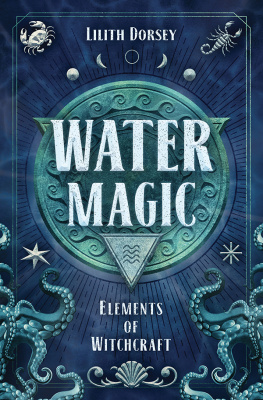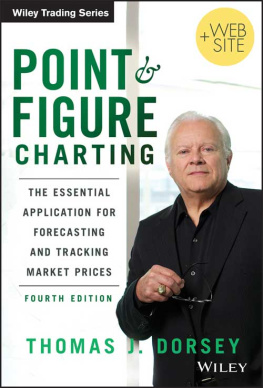Dorsey - Whales and Nations: Environmental Diplomacy on the High Seas
Here you can read online Dorsey - Whales and Nations: Environmental Diplomacy on the High Seas full text of the book (entire story) in english for free. Download pdf and epub, get meaning, cover and reviews about this ebook. year: 2014, publisher: University of Washington Press, genre: Politics. Description of the work, (preface) as well as reviews are available. Best literature library LitArk.com created for fans of good reading and offers a wide selection of genres:
Romance novel
Science fiction
Adventure
Detective
Science
History
Home and family
Prose
Art
Politics
Computer
Non-fiction
Religion
Business
Children
Humor
Choose a favorite category and find really read worthwhile books. Enjoy immersion in the world of imagination, feel the emotions of the characters or learn something new for yourself, make an fascinating discovery.
- Book:Whales and Nations: Environmental Diplomacy on the High Seas
- Author:
- Publisher:University of Washington Press
- Genre:
- Year:2014
- Rating:5 / 5
- Favourites:Add to favourites
- Your mark:
- 100
- 1
- 2
- 3
- 4
- 5
Whales and Nations: Environmental Diplomacy on the High Seas: summary, description and annotation
We offer to read an annotation, description, summary or preface (depends on what the author of the book "Whales and Nations: Environmental Diplomacy on the High Seas" wrote himself). If you haven't found the necessary information about the book — write in the comments, we will try to find it.
Dorsey: author's other books
Who wrote Whales and Nations: Environmental Diplomacy on the High Seas? Find out the surname, the name of the author of the book and a list of all author's works by series.
Whales and Nations: Environmental Diplomacy on the High Seas — read online for free the complete book (whole text) full work
Below is the text of the book, divided by pages. System saving the place of the last page read, allows you to conveniently read the book "Whales and Nations: Environmental Diplomacy on the High Seas" online for free, without having to search again every time where you left off. Put a bookmark, and you can go to the page where you finished reading at any time.
Font size:
Interval:
Bookmark:
WEYERHAEUSER ENVIRONMENTAL BOOKS
William Cronon, Editor
Weyerhaeuser Environmental Books explore human relationships with natural environments in all their variety and complexity. They seek to cast new light on the ways that natural systems affect human communities, the ways that people affect the environments of which they are a part, and the ways that different cultural conceptions of nature profoundly shape our sense of the world around us. A complete list of the books in the series appears at the end of this book.


ENVIRONMENTAL DIPLOMACY on the HIGH SEAS
Kurkpatrick Dorsey
UNIVERSITY OF WASHINGTON PRESS
Seattle and London
Whales and Nations: Environmental Diplomacy on the High Seas is published with the assistance of a grant from the Weyerhaeuser Environmental Books Endowment, established by the Weyerhaeuser Company Foundation, members of the Weyerhaeuser family, and Janet and Jack Creighton.
2013 by the University of Washington Press
Printed and bound in the United States of America
Design by Thomas Eykemans
Composed in Sorts Mill Goudy, typeface designed by Barry Schwartz
18 17 16 15 14 13 5 4 3 2 1
All rights reserved. No part of this publication may be reproduced or transmitted in any form or by any means, electronic or mechanical, including photocopy, recording, or any information storage or retrieval system, without permission in writing from the publisher.
UNIVERSITY OF WASHINGTON PRESS
PO Box 50096, Seattle, WA 98145, USA
www.washington.edu/uwpress
LIBRARY OF CONGRESS CATALOGING-IN-PUBLICATION DATA
Dorsey, Kurkpatrick.
Whales and nations : environmental diplomacy on the high seas / Kurkpatrick Dorsey.
pages cm. (Weyerhaeuser environmental books)
Includes bibliographical references and index.
ISBN 978-0-295-99311-9 (hardcover : alkaline paper) 1. WhalingPolitical aspectsHistory20th century. 2. WhalingEnvironmental aspectsHistory20th century. 3. WhalesConservationHistory20th century. 4. Sustainable fisheriesHistory20th century. 5. WhalingLaw and legislationHistory20th century. 6. Environmental law, InternationalHistory20th century. 7. DiplomacyHistory20th century. 8. International cooperationHistory20th century. I. Title.
SH383.D67 2014 338.3'7295dc23 2013024193
The paper used in this publication is acid-free and meets the minimum requirements of American National Standard for Information SciencesPermanence of Paper for Printed Library Materials, ANSI Z39.481984.
ISBN-13: 978-0-295-80494-1 (electronic)
CREATURES OF THE CONTESTED DEEP
William Cronon
IN 1968, THE BIOLOGIST GARRETT HARDIN PUBLISHED AN ARTICLE IN Science that became an instant environmental classic. Entitled The Tragedy of the Commons, it offered a moral fable about medieval peasants who destroyed their shared pastures by gradually adding more and more grazing animals until the carrying capacity of the land collapsed, with devastating consequences for all concerned. What made Hardin's essay so striking was his claim that the peasants destroyed their own prosperity precisely because their behavior was the only rational choice available to them. The crux of his argument was that individual peasants got all the profits from selling each new animal they added to the pasture, whereas the small incremental harm caused by that animal was shared by everyone in common. From an individual's point of view, it made perfect sense to add more animals since their environmental costs were mainly borne by everyone else. Furthermore, if a few enlightened peasants resisted adding animals to the commons in an effort to conserve the pasture, their neighbors would simply add more animals to gain the incremental profits for themselves. Under such circumstances, the only intelligent thing to do was to keep adding animals to earn as much individual profit as possibleuntil the inevitable collapse brought the whole weirdly rational game to a catastrophic halt.
Hardin did not originate this important argument, though the evocative title he chose for his essay has associated his name with it ever since. Environmental problems arising from market failures involving property held in common had first been described decades earlier by fisherieseconomists working on what they called the fisherman's problem. That story will be familiar to anyone who has read Arthur McEvoy's classic 1986 book of the same title. The puzzle these economists had tried to solve was why fishing fleets seem almost inevitably to overharvest the animals on which their own profitability depends. The answer was essentially the same as for Hardin's peasants. Individual fishers had no incentive not to harvest more fish, since if they failed to do so their competitors would just grab those profits for themselves. Rather than limit their catch in an enlightened effort to protect the stocks on which they all depended, fishing fleets harvested with competitive abandon until the resource collapsed. The problem was compounded by the enormous uncertainties involved in estimating fish populations that ranged vast distances beneath the surface of the water, a challenge Hardin's peasants never faced. The only solution to this paradox, the fisheries economists argued, was either to privatize fish by creating property rights that gave fishers incentives to conserve them or to keep the harvest sustainable by imposing government regulations that would limit the catch by size or duration.
McEvoy demonstrated the ways in which this seemingly universal economic modelwhich everyone now calls the tragedy of the commonsdoes not do full justice to the cultural and historical complexities involved in harvesting fish or any other common property resource. In fact, the rationality of overharvesting mainly arises under conditions of uncontrolled market competition, which have been much more the exception than the rule over the sweep of human history. Any number of mechanisms, ranging from cultural norms to religious rituals to state regulations, have been relatively effective in avoiding the fisherman's problemmedieval peasants themselves rarely behaved in the ways Hardin ascribed to themso that treating the tragedy of the commons as a universal law of human nature turns out to be deeply misleading. It nonetheless offers important insights into the causes of overfishing in the modern era, and the reasons why governments have so often resorted to regulations to protect fisheries.
But there is an additional problem that McEvoy, writing mainly about fisheries in California, did not need to address at length. Wild animals do not honor national boundaries. Moreover, such boundaries are especially challenging to define and defend in the waters of the open ocean, which is why they have so often been a source of international conflict. Ifthe tragedy of the commons is best solved by state interventionwhether through regulation or the creation of property rightsuncertainties about the effectiveness of state power in maritime environments mean that the challenge of avoiding the fisherman's problem is not merely economic, but legal, political, and diplomatic as well.
This is why Kurk Dorsey's book, Whales and Nations: Environmental Diplomacy on the High Seas, is such an important contribution, with implications that are as far-reaching as McEvoy's and Hardin's. Dorsey helped pioneer the field of diplomatic environmental history with his
Font size:
Interval:
Bookmark:
Similar books «Whales and Nations: Environmental Diplomacy on the High Seas»
Look at similar books to Whales and Nations: Environmental Diplomacy on the High Seas. We have selected literature similar in name and meaning in the hope of providing readers with more options to find new, interesting, not yet read works.
Discussion, reviews of the book Whales and Nations: Environmental Diplomacy on the High Seas and just readers' own opinions. Leave your comments, write what you think about the work, its meaning or the main characters. Specify what exactly you liked and what you didn't like, and why you think so.

